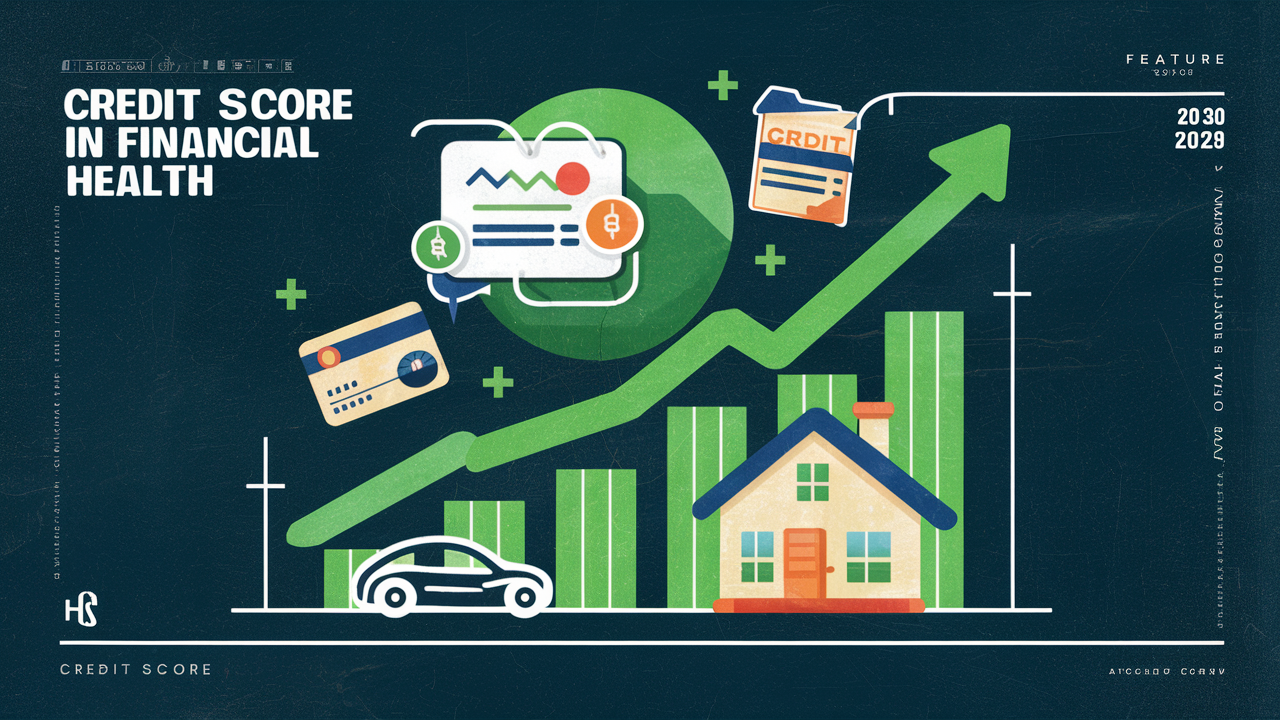A good credit score is crucial for financial health. It impacts loan approvals, interest rates, and financial opportunities.
A strong credit score serves as a financial passport, unlocking numerous opportunities. Lenders view a high score as a sign of reliability, making it easier to secure loans and credit cards with favorable terms. Lower interest rates on mortgages, auto loans, and personal loans are direct benefits of a good credit score.
It also influences rental agreements and insurance premiums. Building and maintaining a good credit score involves timely bill payments, low credit utilization, and responsible credit management. Understanding the importance of a good credit score can lead to better financial decisions and a more secure financial future.
Credit Score Basics
Understanding the basics of credit scores is essential. Credit scores affect your financial health. They play a key role in various financial decisions. Knowing what a credit score is and how it’s calculated helps you manage your finances better.
What Is A Credit Score?
A credit score is a number that represents your creditworthiness. Lenders use this number to decide if they can trust you with money. Your credit score ranges from 300 to 850. A higher score means you are more reliable to lenders.
Credit scores are used by banks, credit card companies, and other lenders. They help these institutions decide on loans and interest rates. If you have a high credit score, you get better loan terms.
How Credit Scores Are Calculated
Credit scores are calculated using your credit report data. There are five main factors involved:
- Payment History (35%): This is the record of your past payments. It shows if you pay your bills on time.
- Amounts Owed (30%): This is the total amount of debt you have. It looks at how much of your available credit you are using.
- Length of Credit History (15%): This measures how long you have been using credit. A longer history can improve your score.
- Credit Mix (10%): This looks at the types of credit accounts you have. Having a mix of credit types can be beneficial.
- New Credit (10%): This considers how many new credit accounts you have opened recently. Opening many new accounts in a short time can lower your score.
Here is a simple table to summarize these factors:
| Factor | Percentage |
|---|---|
| Payment History | 35% |
| Amounts Owed | 30% |
| Length of Credit History | 15% |
| Credit Mix | 10% |
| New Credit | 10% |
Keeping these factors in mind helps you improve your credit score. Make payments on time. Keep your debt low. Maintain a long credit history. Use different types of credit. Avoid opening too many new accounts at once.
Impact On Financial Health
A credit score is a vital part of your financial health. It affects many aspects of your financial life. Understanding its impact can help you make better financial decisions.
Loan Approvals
When you apply for a loan, lenders check your credit score. A high credit score increases your chances of getting approved. It shows you are a reliable borrower. A low score may lead to loan denial. Lenders see it as a risk.
Interest Rates
Your credit score also affects the interest rates you receive. Higher scores often lead to lower interest rates. This means you pay less over time. Lower scores usually result in higher rates. This makes loans more expensive.
| Credit Score Range | Interest Rate |
|---|---|
| 750-850 | Low |
| 650-749 | Moderate |
| 300-649 | High |
- High credit scores equal lower interest rates.
- Low credit scores equal higher interest rates.
Credit Score Ranges
Your credit score plays a vital role in your financial health. It helps lenders decide if you’re a good risk. Understanding credit score ranges can aid in planning your financial future.
Excellent To Poor Scores
Credit scores typically range from 300 to 850. These scores are grouped into categories from excellent to poor. Each range reflects a different level of creditworthiness.
| Score Range | Category |
|---|---|
| 800-850 | Excellent |
| 740-799 | Very Good |
| 670-739 | Good |
| 580-669 | Fair |
| 300-579 | Poor |
What Each Range Means
Excellent (800-850): You have top-tier credit. You get the best loan rates.
Very Good (740-799): You have solid credit. You still get good rates.
Good (670-739): You are an average borrower. You get decent loan terms.
Fair (580-669): You might face higher interest rates. Loans can be harder to get.
Poor (300-579): You have bad credit. It’s hard to get loans or credit.
Factors Affecting Credit Score
Understanding the factors affecting your credit score is crucial for financial health. Your credit score impacts loans, credit cards, and even job applications. Let’s explore the key elements that influence your credit score.
Payment History
Payment history is a major factor in your credit score. Paying bills on time boosts your score. Late payments can harm it. Consistent late payments can drop your score significantly.
Credit bureaus track your payment history closely. They note every missed or delayed payment. This information stays on your report for years.
Here’s a simple table showing the impact of payment history:
| Payment Status | Impact on Score |
|---|---|
| On-Time Payments | Positive |
| Late Payments | Negative |
| Missed Payments | Very Negative |
Credit Utilization
Credit utilization is another key factor. It measures the amount of credit you’re using compared to your limit. Lower utilization rates are better for your score.
To calculate your credit utilization rate, use this formula:
Credit Utilization Rate = (Total Credit Used / Total Credit Limit) 100For example, if you have a limit of $1000 and you use $300, your utilization rate is 30%.
Here are some tips to manage credit utilization:
- Keep credit card balances low.
- Pay off credit card balances each month.
- Don’t close unused credit cards.
Maintaining a low credit utilization rate helps improve your score over time.
Improving Your Credit Score
Improving your credit score can greatly enhance your financial health. A higher credit score opens the door to better loans and lower interest rates. This section will cover key strategies to improve your credit score, focusing on timely payments and reducing debt.
Timely Payments
Making timely payments is crucial for improving your credit score. Always pay your bills on or before the due date. This includes credit card bills, utility bills, and loans. Setting up automatic payments can help ensure you never miss a due date. Missing a payment can hurt your credit score significantly. Lenders see consistent payments as a sign of reliability. If possible, pay more than the minimum amount due. This helps reduce your balance faster and shows financial responsibility.
Reducing Debt
Reducing debt is another key factor in boosting your credit score. Start by making a list of all your debts. Include credit card balances, personal loans, and other obligations. Focus on paying down high-interest debts first. This can save you money in the long run. A debt snowball or avalanche method can be effective. The snowball method involves paying off the smallest debts first. The avalanche method targets the highest interest debts.
| Debt Reduction Method | Description |
|---|---|
| Snowball Method | Pay off the smallest debts first, then move to larger ones. |
| Avalanche Method | Pay off debts with the highest interest rates first. |
Reducing your credit card balances also helps. Aim to use less than 30% of your available credit. For example, if your limit is $1,000, try to keep your balance below $300. Keeping your balances low shows lenders that you manage credit wisely. Also, avoid closing old credit accounts. Old accounts add to your credit history length, which is beneficial. If you must close an account, choose a newer one.
By focusing on timely payments and reducing debt, you can steadily improve your credit score. These actions show lenders that you are a responsible borrower. Over time, this can lead to better financial opportunities and greater financial health.

Credit: www.linkedin.com
Common Credit Score Myths
Understanding your credit score is crucial for financial health. Many myths about credit scores can confuse you. Let’s clear up some common misconceptions.
Checking Your Score Hurts It
Many believe checking their credit score will lower it. This is not true. Checking your own score is a soft inquiry. Soft inquiries do not affect your score. Only hard inquiries can impact your credit score. Hard inquiries happen when you apply for new credit.
Examples of soft inquiries include:
- Viewing your own credit report
- Pre-approved credit card offers
- Employment background checks
Feel free to check your score regularly. It helps you stay informed.
Closing Accounts Improves It
Another myth is that closing accounts boosts your credit score. This is often not true. Closing a credit card can reduce your credit utilization ratio. Credit utilization is a key factor in your score.
For example, if you have two cards:
| Credit Card | Limit | Balance |
|---|---|---|
| Card A | $5,000 | $1,000 |
| Card B | $3,000 | $500 |
Your total limit is $8,000, with a $1,500 balance. This makes your utilization 18.75%. If you close Card B, your limit drops to $5,000. Your new utilization jumps to 30%. Higher utilization can lower your score.
Keep accounts open, even if unused. This maintains a lower credit utilization ratio.
Tools For Monitoring
Monitoring your credit score is crucial for maintaining good financial health. Several tools help you keep track of your credit score. These tools provide timely updates and insights.
Credit Score Apps
Credit score apps are handy for monitoring your score on the go. Many apps offer real-time updates. They send alerts if there are changes to your credit report.
- Credit Karma: Provides free credit scores and reports.
- Experian: Offers daily updates and credit monitoring.
- Mint: Combines budgeting tools with credit score monitoring.
These apps also offer personalized tips to improve your score. Regular use helps you stay informed and proactive.
Annual Credit Reports
Everyone is entitled to a free annual credit report from each credit bureau. These reports offer a detailed view of your credit history.
| Credit Bureau | Website |
|---|---|
| Equifax | www.equifax.com |
| Experian | www.experian.com |
| TransUnion | www.transunion.com |
Checking these reports helps spot errors and fraudulent activities. Correcting mistakes boosts your credit score.
Regular monitoring helps you understand your financial standing. It keeps you prepared for future financial decisions.

Credit: fastercapital.com
Benefits Of A High Credit Score
A high credit score offers many benefits. It can improve your financial health. This is because it helps you get better deals on loans and credit cards. Here are some key benefits.
Lower Interest Rates
With a high credit score, you can get lower interest rates. This means you pay less money over time. For example, if you have a high score, you might get a loan with a 3% interest rate. Someone with a low score might have to pay 10% or more.
This can save you a lot of money. Imagine you borrow $10,000. With a 3% rate, you pay $300 in interest. With a 10% rate, you pay $1,000. That is a big difference!
Better Loan Terms
A high credit score also helps you get better loan terms. This means you have more choices and flexibility. For example, you might get a longer time to repay the loan. Or, you might get a larger loan amount.
Here is a table showing how loan terms can differ:
| Credit Score | Loan Amount | Repayment Period |
|---|---|---|
| High Score | $20,000 | 10 years |
| Low Score | $10,000 | 5 years |
As you can see, a high credit score gives you better options. You can borrow more money and have more time to repay it.

Credit: fastercapital.com
Frequently Asked Questions
Why Is Credit Important In The Financial System?
Credit is essential for economic growth. It allows businesses to expand and individuals to invest. Good credit improves borrowing terms, lowering costs.
Why Is A Credit Score Important For Financial Planning?
A credit score impacts loan approvals, interest rates, and insurance premiums. It reflects your financial reliability. Good scores lead to better financial opportunities and lower costs, aiding effective financial planning.
What Is The Importance Of Credit Score?
A good credit score improves loan approval chances, lowers interest rates, and enhances financial credibility. It impacts mortgage, car loan, and credit card approvals. High credit scores lead to better financial opportunities and savings.
What Are Three Reasons Why It Is Important To Maintain A Good Credit Score?
Maintaining a good credit score lowers interest rates, improves loan approval chances, and enhances rental applications.
Conclusion
A strong credit score is crucial for financial health. It opens doors to better interest rates and loan approvals. Regularly monitoring and improving your credit score can lead to long-term financial benefits. Make it a priority to maintain a healthy credit score for a stable financial future.

Olga L. Weaver is a distinguished figure in both the realms of real estate and business, embodying a unique blend of expertise in these interconnected domains. With a comprehensive background in real estate development and a strategic understanding of business operations, Olga L. Weaver has positioned herself as a trusted advisor in the complex intersection of property and commerce. Her career is marked by successful ventures in real estate, coupled with a keen ability to integrate sound business principles into property investments. Whether navigating the intricacies of commercial transactions, optimizing property portfolios, or providing strategic insights into market trends, Olga L. Weaver’s expertise encompasses a wide spectrum of both real estate and business-related topics. As a dual expert in real estate and business, she stands as a guiding force, empowering individuals and organizations with the knowledge and strategies needed to thrive in these intertwined landscapes. Olga L. Weaver’s contributions continue to shape the dialogue around the synergy between real estate and business, making her a respected authority in both fields.


